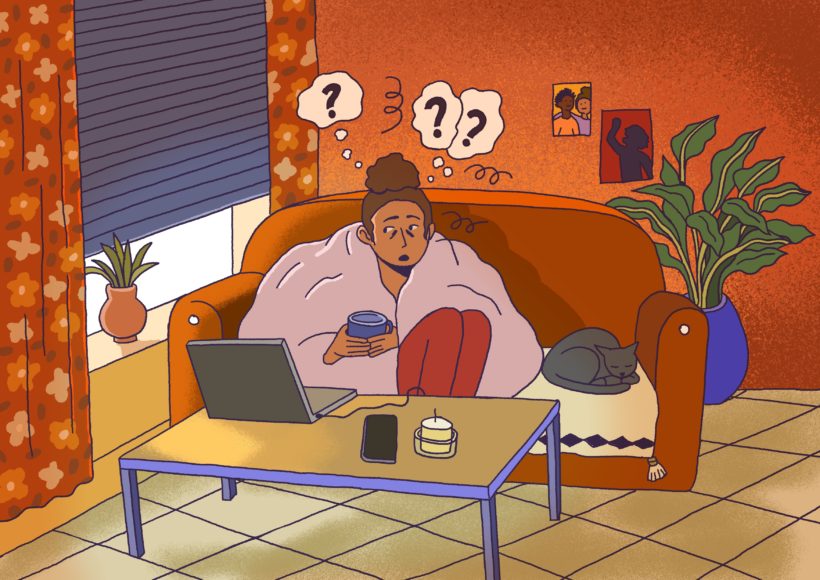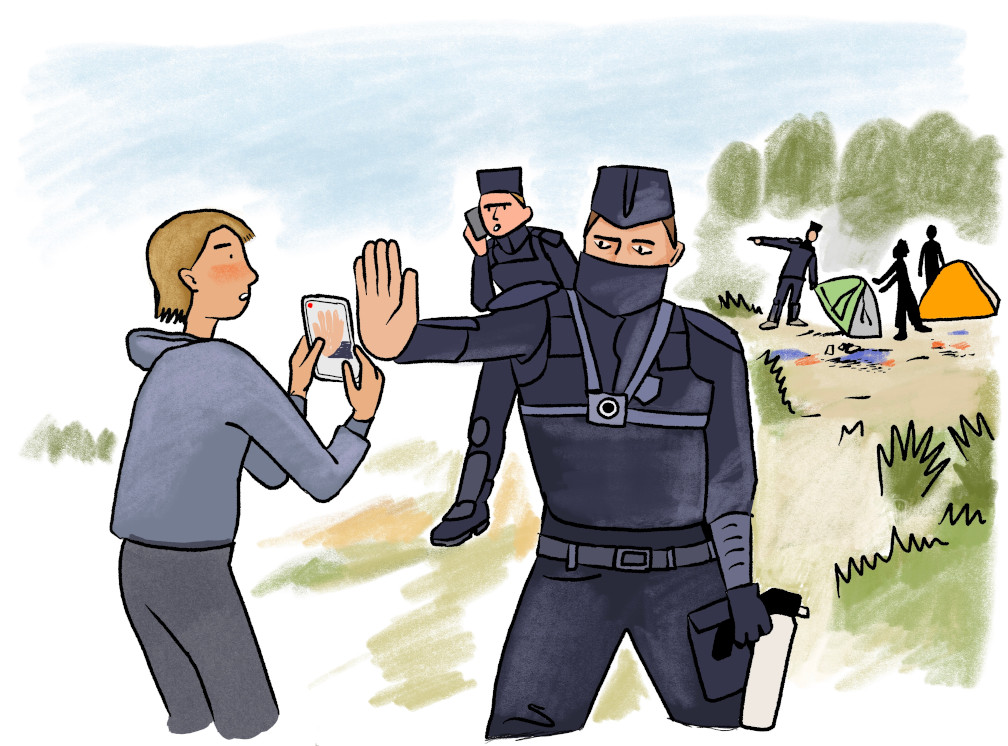Over 150 organisations called for citizens to mobilise against the new, controversial French immigration law deemed ‘an ideological victory’ by far-right leader Le Pen. They condemned this latest ‘clampdown’ on migration, including the suppression of statutory state medical aid for ‘irregular’ migrants and the reinstatement of the ‘illegal stay’ infraction. They also stressed that this law further undermines solidarity efforts providing support to migrant people[i] in precarious conditions (e.g. restricted access to emergency accommodation). Attacks on the principle of solidarity have been a longstanding feature of hostile migration politics. Calais-based organisation Human Rights Observers (HRO) issued a press release last November following the detention in a French police station of two British volunteers, arrested while documenting the eviction of an encampment. HRO denounced this abusive practice as part of sustained efforts from the State to pressurise activists and undermine displaced people’s support networks.
Targeting migrant people and their supporters
In tackling migration, state authorities have regularly absconded from international protection obligations, issued deceiving promises (e.g. “stop the boats”), ramped up dehumanising rhetoric, and multiplied militaristic measures making journeys more dangerous. On the 24th of November 2023, vigils were held on British and French beaches to commemorate the second anniversary of a mass migrant drowning in the English Channel, and call for safe routes. However, states have cracked down on initiatives that document, mitigate, and challenge deadly politics of migration.
In France and elsewhere, state authorities harass and intimidate human rights activists, NGO practitioners, humanitarian volunteers and other citizens who provide support to (racialised) people criminalised for seeking safety, dignity, and opportunities.
This criminalisation has devastating effects on the individuals targeted, contributing to an overall climate of violence and fear, while also deepening the vulnerabilities of migrant people.
Mirroring vilifying discourses about migrant people, politicians and journalists (e.g. British tabloids) often portray solidarity actors as deviant and dangerous: traffickers, profiteers, or even traitors, fuelling the crisis and endangering law-abiding citizens. Some legal processes have attracted media attention: the trials of members of NGO search and rescue operations in the Mediterranean (Pia Klemp and Carola Rackete), and of solidarity actors in places like Greece (Sarah Mardini and Seán Binder), at the Morocco-Spain (Helena Maleno) and Italy-France borders (Cédric Herrou, the Briançon 7). State authorities have targeted organisations and their employees or volunteers but also other citizens (e.g. elderly women, priests, and firefighters) encountering migrant people and offering simple support (charging a mobile phone) motivated by political convictions, religious beliefs, or chance meetings with migrant people.
This criminalisation has devastating effects on the individuals targeted, contributing to an overall climate of violence and fear, while also deepening the vulnerabilities of migrant people. The regulation of migration involves a myriad of actors beyond the state (e.g. doctors, teachers) in the production of categories (e.g. illegal) and the enforcement of distinctions (citizen/migrant). The targeting of solidarity practices raises questions about how bordering processes not only govern the mobility of migrant people but also target those who challenge such processes, thereby (to some extent) collapsing some of their experiences, notably as subjects of repression and surveillance. Beyond these high-profile court-cases, forms of criminalisation targeting solidarity actors range from the formal to the informal, the banal to the spectacular.

Fostering fear through insidious harrassment
Louise (pseudonym) explained that, soon after getting involved with an association supporting migrant people in Calais, she realised the extent to which the French authorities target solidarity actors. She felt the impact on her life and loved ones: “I told my children that if one day Mum is taken away by the police, they must remember that she hasn’t done anything wrong, she was just doing humanitarian work. How do you explain to your children that it’s the police who do illegal things? […] My daughter had nightmares about it for a while.”
Her testimony is one of many we collected in a research project on “crimes of solidarity”. In a recent report (‘We know who you are’: hostile migration politics and the criminalisation of solidarity actors in France and Morocco), we focus on the everyday, insidious harassment of individuals and organisations. Moving away from direct legal attempts to criminalise solidarity, insidious harassment ranges from targeting solidarity actors indirectly, through extraneous or opportunistic legal and administrative processes, to invasive and informal practices that repeatedly unsettle solidarity actors in their private sphere, fostering atmospheres of fear and surveillance.
The repression of solidarity actors takes place amidst wider (and worrying) restrictions on the ability of all to voice concerns and challenge harmful policies.
At the French-British border and beyond, state agents deploy opaque and punitive measures to stifle dissent and undermine practices of solidarity which challenge the transnational enforcement of violent migration policies resulting in degrading treatment of migrant people. These brutal measures partake in wider efforts, especially since the destruction of the Calais Jungle in 2016, to make life unliveable for displaced people (e.g. preventing encampments in border zones). Solidarity actors experience gendered and racialized harassment and repression, are routinely issued abusive fines, followed, brutalised, threatened and more.
The repression of solidarity actors takes place amidst wider (and worrying) restrictions on the ability of all to voice concerns and challenge harmful policies. The wider national context is marked by social and political tensions, protests over police violence, crackdowns on dissent (e.g. in response to anti-pension reform movements), and the country’s post-colonial history of repressing ethnic minorities.
Like the treatment of migrant people, the criminalisation of solidarity actors should worry all citizens as to the capacity and willingness of state authorities to stifle dissent and infringe fundamental rights (e.g. to protest). The targeting of solidarity illustrates how state authorities deploy formal and informal methods to further enforce bordering processes and crack down on those who dare to challenge them. It raises questions about how climates of fear are generated as part of hostile politics of migration, with devastating consequences for migrant people and their supporters, bringing to the fore efforts to enforce and contest normative distinctions between citizens and (unwanted) strangers.
[i] Naming and categorising people depending on their migration status and in relation to their mobility (or lack of) entail ethical issues. Dominant discourses often employ de-humanising and reductive terminologies. We have elected to use the term ‘migrant people’ here to avoid reducing people to a certain status or condition






